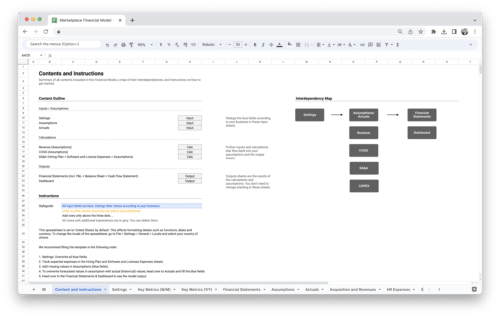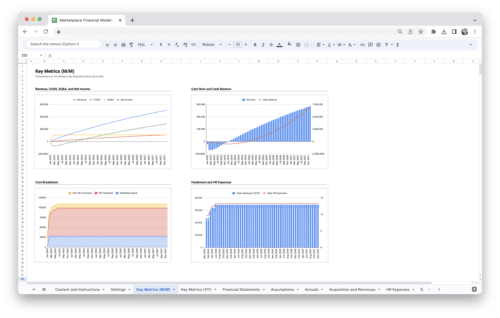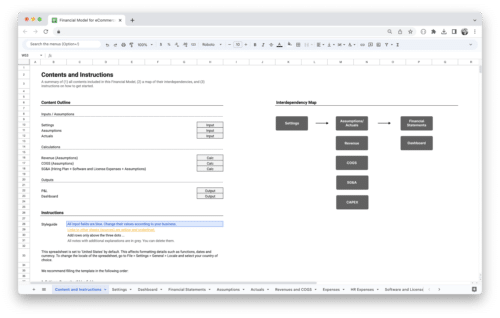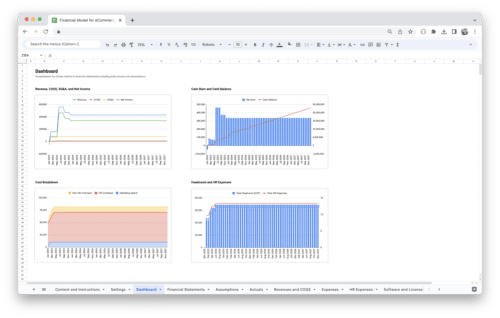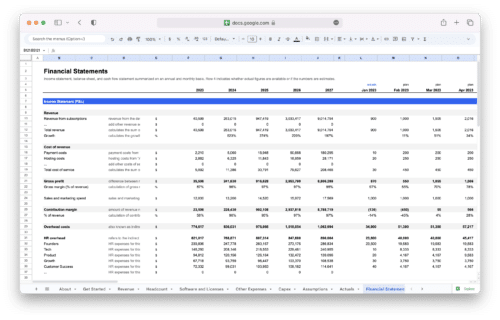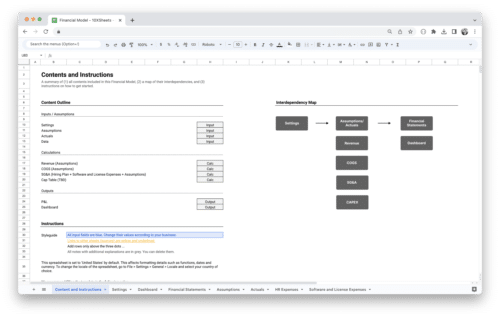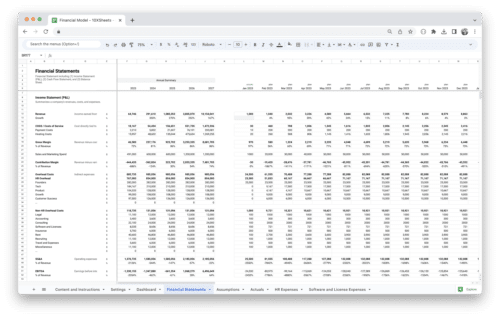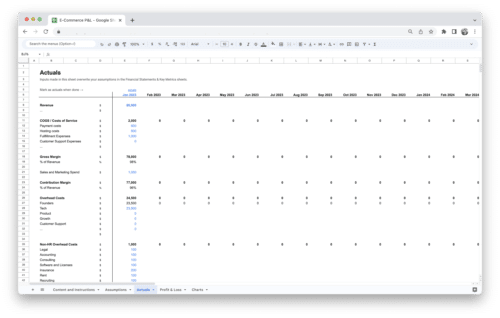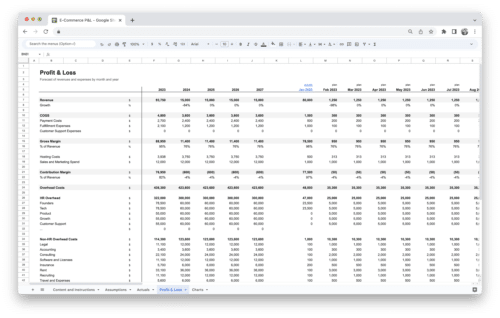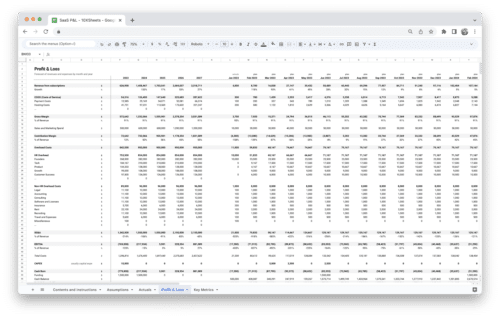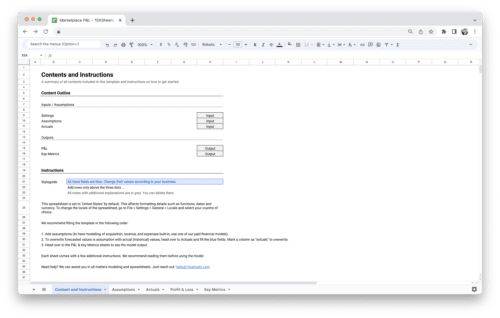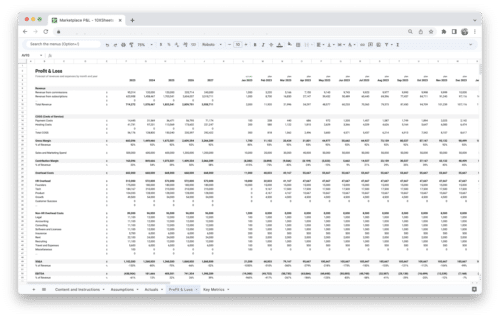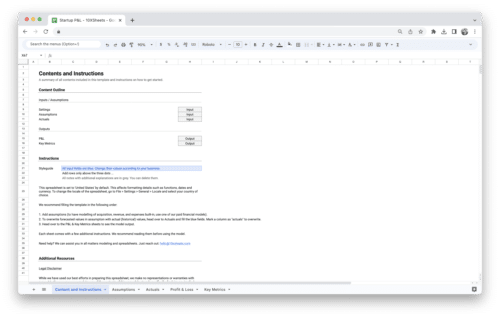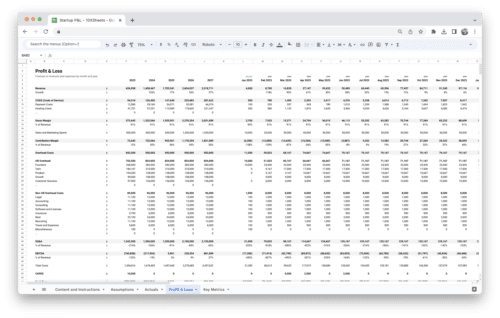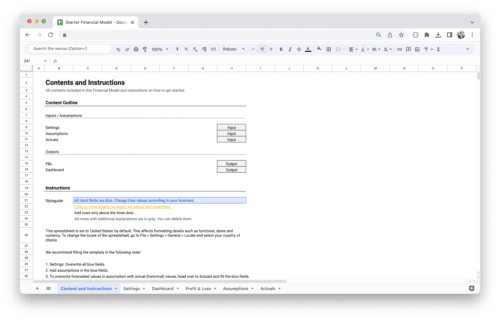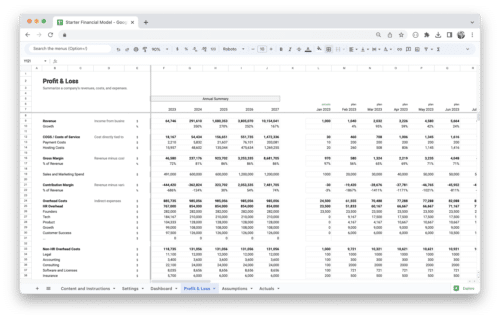What does a successful career in finance look like? With so many paths to choose from, it can be hard to figure out where to start and how to succeed. Finance careers are diverse, offering everything from working with companies to manage their finances to helping individuals grow their wealth. Whether you’re interested in analyzing financial data, making investment decisions, or advising clients on their financial plans, there’s a role that fits your skills and interests.
In this guide, we’ll explore the top finance careers, what they involve, and how you can build the skills you need to excel. Whether you’re just starting out or looking to shift your career focus, understanding the key roles, necessary skills, and career paths will help you make the best choice for your future.
What are Finance Careers?
Finance careers refer to a wide range of professional roles that involve the management, analysis, and investment of money and resources. These careers play a central role in the functioning of businesses, governments, and individuals alike. Whether it’s assessing risk, managing investments, or advising on financial decisions, professionals in the finance industry help ensure that organizations and individuals make informed decisions to maintain or grow their wealth.
Finance careers are crucial in today’s economy for a variety of reasons. The world’s financial systems drive global trade, investment, and economic development. Whether working at a large corporation, a government agency, or a financial institution, finance professionals help companies navigate complex markets, manage financial risks, and ensure sustainable growth. As the global economy becomes more interconnected, the demand for skilled finance professionals has only increased.
- Impact on business strategy: Finance professionals help organizations allocate resources, plan for the future, and manage risk, making them key players in shaping long-term business success.
- Driving economic growth: By facilitating investments, managing assets, and optimizing financial strategies, finance professionals contribute directly to the economic growth of industries, regions, and even entire countries.
- Job creation and stability: The finance industry provides numerous career opportunities, from entry-level positions to high-level leadership roles, and is a major source of employment in many regions around the world.
- Investment in innovation: Finance professionals manage the flow of capital, which fuels innovation by providing businesses with the resources they need to grow and invest in new technologies, products, and services.
Types of Finance Careers
The finance sector is vast, with a wide range of career options depending on your interests and skills. Whether you’re interested in corporate strategy, personal wealth management, or financial markets, there are opportunities in nearly every aspect of business and economics. Finance professionals can specialize in various fields and industries, each offering unique challenges and rewards.
- Corporate Finance: In corporate finance, professionals manage a company’s finances, including budgeting, forecasting, and investment decisions. Roles such as financial analyst, CFO, or risk manager are common in this field.
- Investment Banking: Investment bankers assist organizations in raising capital, conducting mergers and acquisitions (M&A), and providing advisory services. The roles in investment banking include investment banker, M&A advisor, and trading specialist.
- Personal Finance: Personal finance professionals work with individuals to help them manage their money, investments, and financial planning. This includes roles such as financial advisor, wealth manager, and insurance consultant.
- Financial Planning and Analysis (FP&A): FP&A professionals focus on budgeting, forecasting, and analyzing financial data to guide an organization’s strategic decision-making. Roles in FP&A include financial planner, finance manager, and business analyst.
- FinTech: As technology continues to disrupt the financial sector, FinTech professionals focus on the integration of technology with financial services. Roles in this field include blockchain developers, data scientists, and product managers.
- Private Equity and Venture Capital: Professionals in these fields manage investments in private companies or startups, looking to maximize returns. Roles include private equity analyst, venture capitalist, and portfolio manager.
- Risk Management: Risk managers focus on identifying, analyzing, and mitigating potential risks to an organization’s financial well-being. Positions in risk management include risk analyst, risk manager, and compliance officer.
Skills Needed for Success in the Finance Industry
To succeed in finance, professionals need a combination of technical expertise, analytical thinking, and interpersonal abilities. The finance industry is fast-paced and often high-pressure, so individuals must be adaptable, detail-oriented, and proficient in complex financial tools. Whether you’re working in investment banking, corporate finance, or personal wealth management, certain core skills will help you excel in any finance career.
- Analytical and critical thinking skills: The ability to analyze data, identify patterns, and make informed decisions is crucial for almost all roles in finance. Analytical skills allow professionals to assess risks, evaluate investment opportunities, and create strategies based on financial data.
- Proficiency in financial software and tools: Familiarity with financial software like Excel, QuickBooks, Tableau, and specialized tools for financial modeling or risk management is a must. These tools are essential for conducting detailed analysis, preparing reports, and managing complex datasets.
- Attention to detail: Finance professionals deal with complex data, and even small errors can lead to significant financial consequences. The ability to notice discrepancies and ensure accuracy in financial documents is an essential skill in finance.
- Communication and presentation skills: Whether you’re explaining financial reports to stakeholders, negotiating deals, or advising clients, clear communication is key. Finance professionals must be able to convey complex ideas and data in a way that is easy to understand.
- Time management and organization: Given the fast-paced nature of the industry, finance professionals must be able to prioritize tasks, manage multiple projects simultaneously, and meet tight deadlines.
- Problem-solving abilities: Finance often involves identifying solutions to complex financial challenges, from improving cash flow to finding investment opportunities. Professionals must be able to approach problems creatively and develop effective solutions.
- Adaptability and willingness to learn: The financial landscape is constantly changing, from evolving regulations to new technological advancements. Successful finance professionals must stay up-to-date with industry trends and be open to adapting to new tools, systems, and strategies.
Pathways to a Finance Career
Embarking on a finance career can seem daunting, but understanding the key steps to get there will make the journey clearer. A successful career in finance typically begins with a solid educational foundation, followed by hands-on experience and strategic networking. Whether you’re just starting your career or looking to advance, knowing the necessary steps can set you up for long-term success.
Overview of Educational Requirements
To get started in finance, education is crucial. While there’s no single “right” path, certain degrees and certifications can significantly enhance your chances of landing a job and progressing within the industry. A solid educational background lays the groundwork for your skills and expertise, which will be pivotal in your career.
Most finance professionals begin their journey with a bachelor’s degree in fields like finance, economics, business, or accounting. These programs provide a broad understanding of financial principles, financial markets, accounting, and the economic factors that shape decision-making. A bachelor’s degree is often considered the baseline requirement for most finance roles, and it offers foundational knowledge that you can build on through experience and further education.
For those who want to specialize or gain an edge over others, certifications can make a big difference. Consider earning certifications like:
- Chartered Financial Analyst (CFA): Widely regarded as one of the most prestigious qualifications in finance, the CFA program focuses on investment management, financial analysis, and portfolio management. The rigorous coursework and exams prepare you for high-level roles in asset management, hedge funds, and corporate finance.
- Certified Public Accountant (CPA): For those interested in accounting or auditing roles within corporate finance, the CPA is the standard certification. It demonstrates your expertise in financial reporting, tax regulations, and compliance.
- Financial Risk Manager (FRM): If you’re interested in risk management, the FRM certification is key. It’s perfect for roles where assessing financial risks, managing portfolios, and identifying threats to a business’s financial health are the focus.
- Certified Financial Planner (CFP): Ideal for those pursuing careers in personal finance, this certification focuses on helping individuals manage their finances, including retirement planning, tax strategies, and estate management.
Along with degrees and certifications, specialized graduate programs like an MBA or a master’s in finance can be valuable for those aiming for higher roles in finance or looking to switch into the field from a different industry. While not mandatory, advanced degrees can fast-track your career, providing access to higher-paying roles and a broader network.
Internships and Entry-Level Roles: Gaining Experience Early
Education gives you the tools, but hands-on experience is what transforms knowledge into real-world skills. Internships and entry-level roles are essential stepping stones in the finance world. Starting early will help you build a practical understanding of financial concepts, refine your professional skills, and most importantly, establish the industry connections that are key to advancing in finance.
Internships are often the best way to gain insight into a particular area of finance. Many companies offer internships to college students, giving them an opportunity to experience the day-to-day responsibilities of finance professionals. For instance, a summer internship with an investment bank, a wealth management firm, or an accounting firm provides exposure to financial analysis, client interactions, and the inner workings of the finance industry. These internships often serve as pipelines to full-time positions, offering you a chance to stand out among other candidates once you graduate.
Internships also allow you to explore different sectors of finance. If you’re uncertain about which area you’d like to pursue—corporate finance, investment banking, personal finance, or something else—internships give you the chance to explore and discover your true interests without committing long-term.
Once you’ve completed internships and are ready to start your career full-time, you’ll likely enter the industry through entry-level roles. These roles, such as a financial analyst, accounting assistant, or junior consultant, provide valuable exposure to finance operations. You’ll likely spend your first few years supporting senior professionals, learning how to analyze financial data, and assisting in preparing reports or presentations.
Although entry-level positions may involve routine tasks like data entry or basic analysis, they are crucial for building your knowledge of industry practices and systems. As you gain more experience and responsibility, you’ll gradually take on more complex tasks, eventually moving up to mid-level or senior roles.
The Value of Networking and Mentorship
Building relationships in finance is just as important as developing technical expertise. Whether you’re just starting or you’re looking to climb the corporate ladder, networking and mentorship are critical tools for advancing in your career.
Networking in finance means connecting with other professionals who can help guide your career path, offer industry insights, and even alert you to job opportunities. Attend finance-related events, such as industry conferences, seminars, webinars, and workshops. Being in the same room as professionals and experts can expose you to new trends, emerging tools, and strategies in the finance sector. Joining finance associations or organizations can also open doors to new career opportunities and potential mentors.
Additionally, having a mentor can dramatically impact your career trajectory. A mentor is someone with more experience who can offer advice, share their experiences, and guide you through tricky career decisions. Mentors often help their mentees understand the nuances of the industry, develop technical skills, and provide guidance on how to handle challenges in the workplace. A strong mentorship relationship can also help you gain confidence in your decision-making and career planning.
Remember, networking and mentorship aren’t just about getting ahead; they’re about building meaningful relationships with people who can offer advice, collaboration, and partnership throughout your career. And in finance, a strong network is often a critical factor for long-term success. Whether it’s through personal referrals or just having the right people in your corner, connections play an important role in career advancement.
Getting into the finance industry is a rewarding but competitive journey. By acquiring the right education, gaining early hands-on experience, and cultivating relationships through networking and mentorship, you’ll have the tools necessary to thrive and grow in the finance world. Whether you’re aiming for a high-level role in a multinational corporation or a personal finance consultant, these steps will provide the foundation for a successful and fulfilling career in finance.
Key Roles in the Finance Industry
The finance industry offers a wide array of roles, each catering to different interests, skills, and career goals. Whether you prefer working with corporate budgets, advising clients on investments, or diving into the tech-driven world of FinTech, there’s a role for you. Understanding the different career paths available is crucial to navigating the world of finance and finding the best fit for your skills and aspirations. Let’s take a closer look at some of the key roles in the finance industry and what they entail.
Corporate Finance: Roles and Responsibilities
Corporate finance is at the heart of a company’s financial health and strategy. Professionals in corporate finance are responsible for managing the financial operations of a business, making strategic financial decisions, and ensuring that resources are allocated effectively to meet organizational goals. These roles require a strong understanding of business principles, financial modeling, and financial strategy.
- Financial Analyst: A financial analyst analyzes a company’s financial data to help senior management make informed business decisions. They assess the company’s financial health by reviewing reports, conducting performance analysis, and developing financial models that predict future performance. Financial analysts play a key role in budget forecasting, financial planning, and capital investment decisions.
- Chief Financial Officer (CFO): The CFO is one of the most senior positions in a company and is responsible for overseeing the entire financial strategy. This includes managing the company’s finances, budgeting, forecasting, and reporting, as well as ensuring compliance with regulations. The CFO plays a crucial role in strategic planning, guiding the company’s overall direction by providing key financial insights and making high-level decisions about investments and growth.
- Risk Manager: Risk managers focus on identifying, assessing, and mitigating financial risks that could negatively impact a company’s financial stability. They analyze market conditions, internal processes, and external threats to ensure that potential risks are minimized. This role often involves developing risk management strategies, maintaining a balance between risk and reward, and ensuring compliance with relevant financial regulations.
Investment Banking: High-Pressure Roles with High Rewards
Investment banking is one of the most prestigious and high-paying areas in the finance sector. Professionals in investment banking provide critical financial services such as helping companies raise capital, facilitating mergers and acquisitions, and advising on complex financial transactions. The work in investment banking is often fast-paced and high-stakes, requiring sharp analytical skills and the ability to work under pressure.
- Investment Banker: Investment bankers are the main players in helping companies raise capital. They advise corporations on the best way to structure their financing, whether through issuing stock or bonds, and guide them through the complexities of mergers, acquisitions, or initial public offerings (IPOs). Investment bankers are skilled at negotiating deals, analyzing financial markets, and understanding the intricacies of corporate financing.
- M&A Advisor: Mergers and acquisitions (M&A) advisors specialize in helping businesses merge or acquire other companies. These professionals conduct in-depth market research, assess the financial value of potential targets, and negotiate the terms of the deal. M&A advisors are integral to ensuring that transactions create value and align with both parties’ strategic objectives.
- Trading Specialist: Trading specialists are responsible for buying and selling financial assets such as stocks, bonds, commodities, and derivatives. They typically work in high-stakes environments such as stock exchanges or proprietary trading firms. Their job is to make decisions on buying or selling securities based on market trends, economic data, and forecasts. This role requires excellent analytical skills and the ability to react quickly to changing market conditions.
Personal Finance: Helping Individuals Manage Wealth
Personal finance professionals play a crucial role in advising individuals on how to manage their money, plan for retirement, and achieve financial security. These professionals work closely with clients to understand their goals and create tailored financial plans that align with their needs.
- Financial Advisor: A financial advisor helps individuals with long-term financial planning. This includes investment advice, retirement planning, tax strategies, and estate planning. Financial advisors assess a client’s financial situation and recommend strategies to meet their goals, such as growing wealth or saving for retirement. They often work for firms or as independent consultants, earning a commission on the products they sell or a fee for their advice.
- Wealth Manager: Wealth managers typically work with high-net-worth individuals (HNWIs) to manage their investment portfolios and provide comprehensive financial planning services. The role of a wealth manager goes beyond investment advice—they also help clients with tax planning, estate planning, and legacy management. Wealth managers develop personalized investment strategies to maximize returns while considering the client’s risk tolerance and financial goals.
- Insurance Consultant: Insurance consultants help clients navigate the complex world of insurance, ensuring that they have adequate coverage for their needs. This could include life insurance, health insurance, disability insurance, and property insurance. Insurance consultants assess a client’s risks and recommend policies to mitigate those risks. They also help clients understand insurance products and find the best options based on their budget and goals.
Financial Planning and Analysis (FP&A): Key Functions
Financial Planning and Analysis (FP&A) is a critical role in any business that aims to maintain financial health and long-term sustainability. FP&A professionals are responsible for budgeting, forecasting, and analyzing the company’s financial performance to ensure it aligns with its strategic goals. The role requires a deep understanding of financial metrics and the ability to create actionable insights based on data analysis.
- FP&A Analyst: FP&A analysts provide the backbone of financial planning by developing detailed forecasts, analyzing financial trends, and making recommendations to senior management on how to improve profitability. They work with other departments to ensure that the company’s financial strategy is aligned with its operational goals. FP&A analysts must be skilled at interpreting financial data and using it to predict future performance, identify potential issues, and guide decision-making.
- FP&A Manager: FP&A managers oversee the financial planning process and are responsible for creating and managing financial models, reviewing forecasts, and ensuring the company’s financial health. They work closely with senior leadership to help set financial targets, track performance against those targets, and adjust strategies as necessary. FP&A managers must have excellent leadership skills and a deep understanding of both financial analysis and business strategy.
FinTech: The Intersection of Technology and Finance
FinTech, or Financial Technology, has emerged as one of the most innovative and rapidly growing sectors within finance. The rise of digital banking, online investing platforms, cryptocurrency, and blockchain technology has transformed the way financial services are delivered. FinTech professionals work at the intersection of finance and technology, developing solutions that improve the efficiency, accessibility, and security of financial services.
- Blockchain Developer: Blockchain developers are responsible for creating and maintaining the decentralized technology that underpins cryptocurrencies like Bitcoin and Ethereum. Blockchain developers design secure, transparent systems that enable peer-to-peer transactions without the need for a central authority. This technology has the potential to revolutionize everything from banking to supply chain management and is in high demand as more industries begin to explore its possibilities.
- Data Scientist in FinTech: Data scientists in FinTech use advanced algorithms and machine learning to analyze vast amounts of financial data and extract meaningful insights. These professionals help businesses make data-driven decisions, identify market trends, and improve customer experiences. Data scientists in FinTech play a crucial role in developing AI-driven tools such as robo-advisors or credit risk models.
- Product Manager: Product managers in FinTech are responsible for overseeing the development of new financial products or platforms. They work closely with developers, marketers, and business stakeholders to ensure that a product meets the needs of its target audience while also complying with industry regulations. Product managers in FinTech need a deep understanding of both financial principles and technology to successfully manage the lifecycle of a product.
The world of FinTech offers a diverse range of opportunities, from creating the next big thing in mobile payments to developing blockchain solutions that change the way the world handles money. As technology continues to evolve, FinTech roles will become even more integral to the future of finance.
The finance industry is broad and diverse, offering opportunities for professionals with a variety of skills and interests. Whether you choose corporate finance, investment banking, personal finance, FP&A, or the cutting-edge world of FinTech, each role offers unique challenges and rewards. By understanding these key roles, you can make an informed decision about which path is right for you and begin building a fulfilling career in finance.
Skills Required for a Successful Finance Career
To excel in the competitive world of finance, you need more than just a solid education and experience. The industry demands a set of specific skills that will not only help you stand out but also enable you to navigate complex financial challenges, make strategic decisions, and build long-lasting professional relationships. From crunching numbers to communicating with stakeholders, these skills are integral to your success in the field. Let’s explore the most important skills you’ll need to thrive in finance.
Analytical Skills and Attention to Detail
In finance, the ability to analyze data and identify patterns is one of the most crucial skills you can have. Financial professionals are often tasked with reviewing large datasets, spotting trends, and deriving actionable insights. This requires a high degree of analytical thinking to interpret the numbers correctly and make informed decisions.
- Problem Solving: Strong analytical skills allow you to identify underlying problems and develop solutions. Whether you’re analyzing a company’s financial health or predicting market trends, your ability to assess complex situations and offer insights is invaluable.
- Attention to Detail: Precision is key in finance. A small error in a financial report, a miscalculated return, or a missed opportunity can lead to significant consequences. Whether you’re reviewing financial statements, conducting market research, or preparing reports, being detail-oriented is a must. Ensuring accuracy in every task, no matter how small, prevents costly mistakes and reflects professionalism.
This skill set is necessary for roles ranging from financial analyst to investment banker, where the smallest error can lead to missed opportunities or poor investment decisions. In a world driven by data, your ability to interpret and act on it accurately will distinguish you from others in the field.
Proficiency in Financial Software and Excel
In the finance world, technology and software play a significant role in simplifying complex tasks and ensuring accuracy. Familiarity with essential financial tools and platforms is essential for managing data, generating reports, and performing financial analyses.
- Excel Mastery: Microsoft Excel is the backbone of finance. From basic formulas and pivot tables to advanced financial modeling and forecasting, Excel is used daily by finance professionals. Being proficient in Excel allows you to analyze data quickly, manipulate large datasets, and create detailed financial models. The more advanced your Excel skills, the more efficient and effective you’ll be in your job.
- Financial Software: In addition to Excel, finance professionals often rely on specialized financial software to perform tasks like managing investments, tracking cash flow, or running risk assessments. Tools like QuickBooks, Tableau, SAS, or Bloomberg Terminal help automate processes, analyze trends, and manage large sets of financial data more effectively.
Having a strong command of both general tools like Excel and industry-specific platforms will enable you to work efficiently and contribute meaningfully to your team’s objectives. Your ability to use these tools will often be one of the first things employers look for, as they directly impact your ability to deliver results.
Understanding Financial Statements and Data
In finance, the foundation of your work is understanding and interpreting financial statements. Whether you’re assessing a company’s performance, preparing reports for clients, or advising on investment decisions, an in-depth understanding of financial data is essential.
- Balance Sheet: A balance sheet provides a snapshot of a company’s assets, liabilities, and equity at a specific point in time. Understanding how to analyze a balance sheet enables you to evaluate the financial health of a company, measure its liquidity, and determine its ability to meet short-term obligations.
- Income Statement: The income statement, or profit and loss statement, outlines a company’s revenues, expenses, and profits over a specific period. Understanding how to analyze an income statement is crucial for evaluating profitability and operational efficiency.
- Cash Flow Statement: The cash flow statement tracks the movement of cash into and out of a company. It’s important for determining the liquidity and long-term sustainability of a business. Finance professionals need to be able to identify discrepancies and understand the sources and uses of cash within a company.
Proficiency in understanding these statements will allow you to assess a company’s financial health and make informed decisions. Whether you’re advising clients, making investment decisions, or managing financial strategies, this skill is fundamental to every aspect of finance.
Communication and Negotiation Skills
While finance is often seen as a data-driven field, communication is just as important. As a finance professional, you will regularly be required to explain complex financial concepts to individuals who may not have a financial background. Your ability to break down these concepts and clearly convey them can make a significant difference in how well you succeed.
- Effective Communication: Whether you’re presenting financial reports, negotiating deals, or discussing strategies with clients or team members, clear communication is crucial. The ability to explain complex data in a way that is easy to understand will help you build trust and ensure that decisions are made based on accurate, accessible information.
- Negotiation Skills: Negotiation is a key part of many finance roles, especially in areas like investment banking, corporate finance, or personal finance. Whether you’re brokering a deal between two companies or advising a client on investment strategies, negotiation skills are vital. Being able to navigate difficult conversations, build consensus, and reach mutually beneficial agreements will be crucial throughout your career.
Incorporating these communication and negotiation skills into your day-to-day work will allow you to manage relationships effectively, whether with clients, senior leaders, or partners. Your ability to facilitate clear dialogue and persuasive negotiations will have a direct impact on your success.
Adaptability in a Constantly Evolving Industry
The finance industry is constantly evolving, driven by changes in market conditions, technological advancements, and regulatory shifts. Adaptability is one of the most valuable skills you can develop as a finance professional. Your ability to stay current with new trends, tools, and regulations will determine your long-term success in this fast-paced environment.
- Technological Advancements: The rise of FinTech, artificial intelligence (AI), blockchain, and big data analytics is reshaping the financial landscape. Professionals who can quickly learn new technologies and apply them to their roles will be at the forefront of this industry transformation.
- Regulatory Changes: The finance industry is heavily regulated, and laws and compliance standards can change frequently. Staying informed about new regulations and adjusting your practices accordingly is crucial to ensuring that your work remains legal, ethical, and compliant.
- Global Market Awareness: The global nature of the finance industry means that economic events in one part of the world can have far-reaching implications. Being adaptable and staying informed about global financial trends, economic policies, and geopolitical issues will give you the insights necessary to respond to changes quickly.
Finance is a constantly shifting field, and professionals who embrace change and remain flexible are the ones who succeed. By staying ahead of new technologies, regulations, and market trends, you’ll ensure that you remain relevant and valuable to employers in the long run.
The skills required for a successful career in finance are broad and multifaceted. From technical abilities like analyzing data and using financial software to soft skills like effective communication and adaptability, all of these competencies play a vital role in your professional growth. By honing these skills, you’ll be well-equipped to handle the challenges and opportunities that arise in the dynamic world of finance.
Career Progression and Growth in Finance
The finance industry offers a range of career opportunities, and one of the major attractions is the potential for growth and progression. Whether you start at the entry level or aim to reach senior leadership positions, the path forward is filled with opportunities to expand your expertise and take on more responsibility. Career progression in finance is often defined by your ability to deliver results, hone your technical and soft skills, and strategically move into roles that align with your long-term goals. Let’s look at how to navigate this journey.
Typical Career Paths in Finance
The finance industry is well-structured in terms of career paths, with clear entry points, progression opportunities, and senior-level roles. While the specifics can vary depending on the exact area of finance, most careers follow a general progression.
- Entry-Level Roles: Your finance journey typically begins with entry-level roles such as a financial analyst, junior accountant, or investment banking associate. These positions offer valuable experience in financial reporting, analysis, budgeting, and forecasting. At this stage, you’ll be involved in supporting senior professionals, conducting research, and preparing reports or presentations. Entry-level roles typically last a few years, during which you’re expected to develop a deep understanding of the industry and gain technical skills that will set the foundation for future roles.
- Mid-Level Roles: As you gain experience, you’ll likely move into mid-level positions such as senior financial analyst, finance manager, or associate director. These roles require more independence and leadership, as you’ll begin to make decisions that directly impact the company’s financial strategy. In these positions, you’ll oversee teams, handle more complex financial models, and have greater influence over decision-making processes. Mid-level roles typically require you to start developing expertise in specific financial areas, such as risk management, mergers and acquisitions, or capital management.
- Senior Roles: After years of experience and demonstrated success, you can move into senior roles such as finance director, VP of finance, or chief financial officer (CFO). At this stage, you’ll be responsible for overseeing the entire financial function of a company, setting strategic financial goals, and providing guidance to other departments. Senior roles require not only deep technical knowledge but also strong leadership, as you’ll be working with C-suite executives, managing large teams, and representing the company’s financial interests at the highest levels.
- Executive Leadership: If you continue to climb the ladder, you might reach C-suite roles such as CFO or chief investment officer (CIO). In these positions, you’re at the helm of the company’s financial strategy and decision-making, guiding the organization through financial challenges, growth, and change.
How to Gain Promotions and Move Up the Finance Career Ladder?
Advancing in the finance industry requires more than just performing well in your current role. Promotions are often tied to your ability to demonstrate leadership, solve complex problems, and drive results. To successfully move up the finance career ladder, consider the following strategies:
- Consistently Deliver Results: The foundation of any promotion is your ability to consistently meet or exceed expectations. Whether you’re responsible for managing budgets, making investment decisions, or optimizing financial operations, delivering results is the best way to prove your value.
- Develop Leadership Skills: As you progress in your career, it becomes increasingly important to demonstrate leadership capabilities. Even in mid-level roles, you can show leadership by managing teams, taking on challenging projects, and mentoring junior employees. Developing these skills will prepare you for senior roles and demonstrate your readiness to take on more responsibility.
- Seek Feedback and Mentorship: Regular feedback is crucial for understanding your strengths and areas for improvement. Seeking mentorship from senior professionals can help you navigate challenges, understand the broader landscape of your career, and receive valuable guidance on how to progress. Building relationships with leaders in your organization or industry can open doors to new opportunities.
- Stay Proactive and Visible: Don’t wait for promotions to come to you. Take initiative by volunteering for high-profile projects, asking for additional responsibilities, and demonstrating your willingness to contribute to the company’s success. Visibility is key to making sure that your efforts are noticed by decision-makers.
- Expand Your Skills and Expertise: The finance industry is constantly evolving, and staying ahead of industry trends is vital for career growth. Consider taking additional certifications or advanced degrees, such as the Chartered Financial Analyst (CFA) or an MBA, to further enhance your expertise. Continuous learning and developing new skills can set you apart from others in the field and help you advance faster.
The Importance of Continuous Learning and Professional Development
Finance is a dynamic and fast-paced industry. With constant changes in market conditions, technology, and regulations, staying current is essential. Continuous learning and professional development are crucial components of long-term career success in finance. Whether it’s gaining new certifications, attending industry conferences, or developing soft skills, investing in your personal growth will help you remain competitive and adaptable in a rapidly changing landscape.
- Certifications and Advanced Degrees: Many finance professionals pursue certifications like CFA, CPA, or FRM to enhance their qualifications. Specialized courses in risk management, data analytics, or financial modeling can also make you more versatile in your role. Advanced degrees like an MBA provide broader strategic knowledge and leadership development, often opening doors to higher-level positions.
- Industry Events and Networking: Finance professionals should attend industry conferences, webinars, and networking events. These events offer opportunities to learn from thought leaders, stay updated on industry trends, and build relationships that can aid your career development.
- Soft Skills Development: In addition to technical skills, finance professionals must continue developing soft skills such as communication, negotiation, and leadership. Courses, workshops, and mentorship programs focused on these skills can help you move forward in your career.
Transitioning Between Different Sectors of Finance
One of the appealing aspects of finance is its versatility. The industry offers opportunities to transition between different sectors, whether from corporate finance to investment banking or from financial analysis to financial planning. The skills you acquire in one area are often transferable to other roles, providing you with the flexibility to explore various career paths within the industry.
- Moving Across Roles: Transitioning between roles can provide broader experience and new challenges. For instance, someone in corporate finance might move into a financial advisory role to gain client-facing experience, or an investment banker could shift to a private equity firm to work on more long-term investments.
- Switching Industries: Many finance professionals also transition between different industries. For example, a financial analyst working in the tech industry might switch to finance roles in healthcare, real estate, or energy, using their analytical skills in new contexts. Your ability to understand and adapt to new business environments will make these transitions smoother.
Salary and Benefits in Finance Careers
The finance industry is known for its high earning potential, but salaries can vary significantly based on your role, level of experience, geographic location, and the specific sector you work in. Understanding salary expectations and the additional benefits that come with finance jobs can help you make informed decisions about your career path.
Average Salaries by Role, Industry, and Location
Salaries in finance vary widely depending on the specific role, industry, and location. While compensation can be quite lucrative in certain areas, it’s important to understand the factors that contribute to these variations.
- Financial Analysts: Financial analysts typically earn between $60,000 and $100,000 annually, depending on their experience and location. In large financial hubs like New York City or London, the salary can be on the higher end of the scale.
- Investment Bankers: Investment bankers are among the highest-paid professionals in the finance industry. Starting salaries for analysts can range from $100,000 to $150,000, with bonuses often significantly increasing total compensation. At senior levels, compensation can exceed $500,000, including performance bonuses.
- CFOs and Senior Finance Roles: Senior roles such as CFOs, finance directors, and VP of finance often have base salaries ranging from $150,000 to $300,000 annually. With bonuses and stock options, this can rise to $500,000 or more.
- Wealth Managers and Financial Advisors: Wealth managers and financial advisors can earn between $70,000 and $150,000 per year, with higher earning potential based on commissions, fees, and assets under management.
Bonuses, Commissions, and Profit-Sharing Opportunities
Bonuses, commissions, and profit-sharing arrangements are common in many finance roles, significantly boosting overall compensation. These performance-based incentives reward individuals and teams for achieving targets and company goals.
- Bonuses: Investment banks and large corporations often offer year-end bonuses tied to performance. These can range from a few thousand dollars for junior roles to hundreds of thousands or more for senior executives and investment bankers.
- Commissions: Many finance professionals, especially in wealth management or sales-driven roles, earn a commission based on the financial products or services they sell. Commissions can be a significant part of your compensation, with earnings often exceeding base salaries.
- Profit Sharing: Some companies offer profit-sharing programs where employees receive a portion of the company’s profits. This is particularly common in private equity or hedge fund firms, where employees benefit directly from the firm’s success.
Benefits: Healthcare, Retirement Plans, and Other Perks
In addition to base salaries and bonuses, finance professionals often receive a range of benefits that contribute to their overall compensation package.
- Healthcare and Insurance: Many finance firms offer comprehensive health insurance packages, including dental, vision, and medical coverage. Health insurance is often extended to families or dependents as well.
- Retirement Plans: Many finance companies provide robust retirement benefits, such as 401(k) plans with company matching, pension schemes, or other long-term savings options. These plans help ensure financial stability after retirement and can significantly enhance your financial well-being in the long run.
- Other Perks: Additional benefits can include paid time off (PTO), wellness stipends, professional development allowances, travel opportunities, and even gym memberships or wellness programs. Many finance firms offer flexible working arrangements and bonuses for achieving specific performance targets, adding to the overall package.
Finance careers are highly rewarding, with plenty of room for growth, both financially and professionally. By understanding salary ranges, career paths, and the benefits associated with different roles, you can make better decisions about your future in the finance industry. Whether you’re aiming for a high-paying investment banking position or a strategic CFO role, the compensation and career progression opportunities are extensive, with the potential for long-term success and financial stability.
How to Start Your Career in Finance?
Starting a career in finance can feel overwhelming given the vast number of paths and opportunities available. However, with a clear strategy and focus, you can break into the field and start building your career. The key is to understand the industry, set goals, and take actionable steps to gain experience and build your professional network.
- Obtain the Necessary Education: Start by earning a degree in finance, accounting, economics, or a related field. Some roles may require specialized certifications or an advanced degree, so consider additional qualifications, such as a CFA or MBA, based on your career goals.
- Gain Experience Through Internships: Internships are essential for gaining hands-on experience and making connections in the industry. Look for internships with companies, financial institutions, or consulting firms to gain exposure to different aspects of finance.
- Leverage Networking Opportunities: Networking is crucial in the finance industry. Attend industry events, connect with professionals on LinkedIn, and seek out mentorship from individuals in roles you aspire to. Building relationships can open doors to job opportunities and career advice.
- Develop Relevant Skills: Focus on developing both technical and soft skills. Technical skills in financial modeling, Excel, and software tools like QuickBooks or Tableau are critical, while soft skills like communication, problem-solving, and leadership will make you stand out.
- Start with Entry-Level Roles: Begin your career with entry-level positions, such as financial analyst or accounting assistant, where you can gain exposure to the financial world. These roles will help you build the foundation of knowledge needed to advance in the industry.
- Stay Informed and Adapt: Keep up to date with industry trends, economic changes, and technological advancements. Being adaptable and willing to learn will help you grow as a finance professional and stay competitive in the market.
- Seek Mentorship and Guidance: Find a mentor who can guide you through the early stages of your career. A mentor can offer valuable insights into the industry, help you navigate career challenges, and provide support as you move forward.
By following these steps, you’ll be on your way to establishing a solid foundation for a successful career in finance. Starting strong, gaining relevant experience, and continuously developing your skills will set you up for long-term success.
Challenges in Finance Careers
While a career in finance offers numerous opportunities, it’s not without its challenges. The industry can be demanding, and the pressure to perform at a high level is often constant. Finance professionals must navigate tight deadlines, deal with complex financial data, and constantly adapt to changes in the market, technology, and regulations. Understanding the challenges you may face in this field will help you prepare for the inevitable hurdles and give you the tools to overcome them.
- High Pressure and Stress: Many finance roles come with tight deadlines, high stakes, and long working hours. This can lead to stress and burnout, particularly in areas like investment banking, trading, and corporate finance. The pressure to meet performance targets, make quick decisions, and stay on top of market fluctuations can be intense. Managing this stress and maintaining a work-life balance is a challenge that many finance professionals face throughout their careers.
- Long Working Hours: The finance industry is known for demanding long hours, especially in investment banking, corporate finance, and public accounting. It’s not uncommon for professionals in these fields to work well beyond the typical 9-to-5 schedule. This can lead to fatigue, burnout, and a lack of time for personal activities, impacting both work-life balance and mental health.
- Job Competition: Finance is a competitive field, with numerous talented professionals vying for similar roles. Breaking into high-demand positions, such as investment banking or senior leadership roles, can be challenging. Even once you’re in a position, you’ll be constantly competing with others for promotions, raises, and desirable projects. Staying ahead of the competition requires continuous learning, building a strong network, and delivering exceptional results.
- Economic and Market Volatility: The finance industry is heavily influenced by market and economic conditions, meaning professionals often face uncertainty. During market downturns, layoffs or hiring freezes can occur, and performance-based roles like bonuses or commissions can fluctuate dramatically. Understanding how to navigate economic cycles and market volatility is essential for long-term career sustainability.
- Navigating Complex Regulations: The finance industry is heavily regulated, and staying compliant with ever-changing laws and guidelines is a constant challenge. From tax laws to securities regulations, professionals must ensure they are up to date with new rules and adjust their strategies accordingly. This requires constant vigilance and a proactive approach to compliance.
- Technological Disruption: As technology continues to evolve, finance professionals must adapt to new tools, platforms, and automation systems. The rise of FinTech, artificial intelligence, and blockchain technologies means that professionals in traditional finance roles must continuously update their technical skills to remain relevant. Those who resist technological change may find themselves at a disadvantage in the job market.
Conclusion
Finance careers offer a wide range of opportunities, whether you’re drawn to analyzing data, advising clients, or managing business strategies. With roles in corporate finance, investment banking, personal finance, and emerging sectors like FinTech, there’s no shortage of paths you can take. Each role comes with its own set of challenges and rewards, but all share the common goal of helping individuals and businesses make smart financial decisions. The key to succeeding in this field is understanding what each role entails, developing the right skills, and being proactive about gaining experience and networking. No matter which finance path you choose, there’s always room to grow and advance as long as you stay committed to learning and adapting to industry changes.
As you move forward in your finance career, remember that success isn’t just about numbers and analysis—it’s about communication, leadership, and staying ahead of trends. The finance industry is constantly evolving, from new technologies to changing regulations, and being adaptable will help you thrive. By honing both your technical and soft skills, and building a network of mentors and peers, you’ll position yourself for long-term success. Whether you’re just starting out or planning your next career move, the finance world is full of opportunities, and with the right approach, you can find a fulfilling and rewarding role that aligns with your interests and goals.
Get Started With a Prebuilt Template!
Looking to streamline your business financial modeling process with a prebuilt customizable template? Say goodbye to the hassle of building a financial model from scratch and get started right away with one of our premium templates.
- Save time with no need to create a financial model from scratch.
- Reduce errors with prebuilt formulas and calculations.
- Customize to your needs by adding/deleting sections and adjusting formulas.
- Automatically calculate key metrics for valuable insights.
- Make informed decisions about your strategy and goals with a clear picture of your business performance and financial health.

